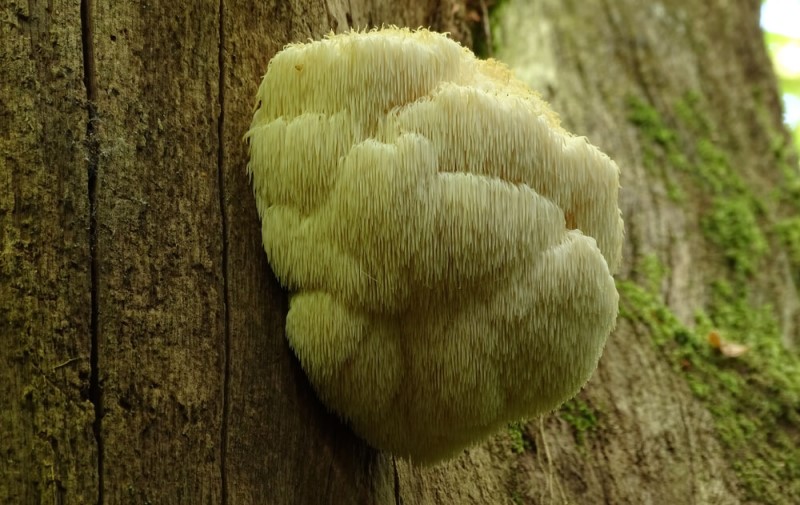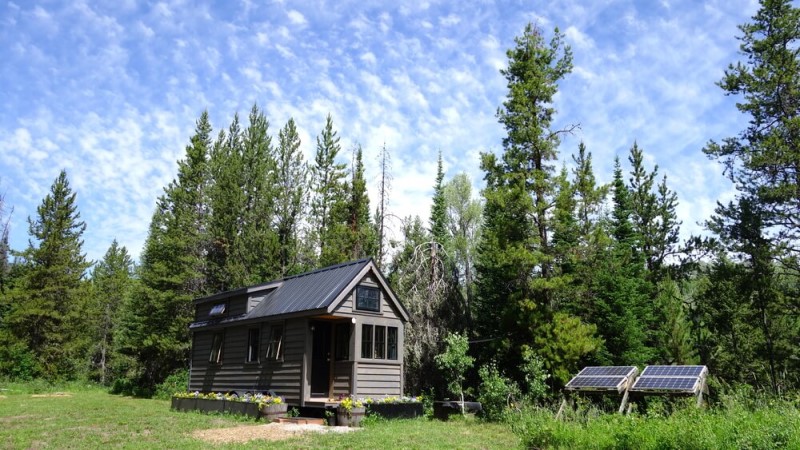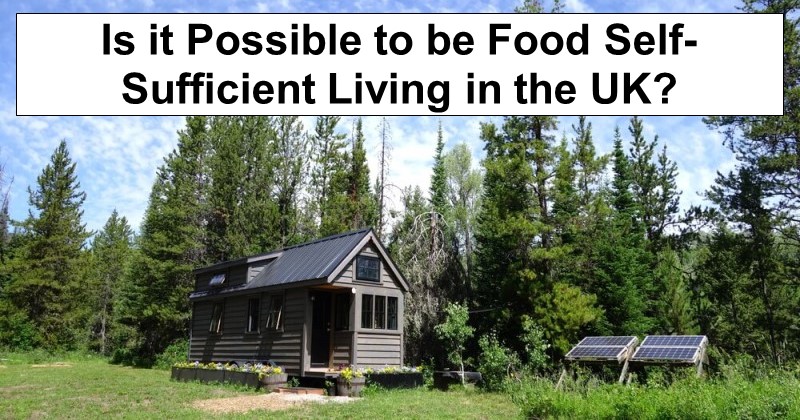At the time of writing, the world is in the midst of a coronavirus pandemic; people are panic-buying and all of the long-term food supplies have been stripped from supermarket shelves.
And while the pandemic will almost certainly burn out in the coming months, for many people it is an awakening. Disasters really can happen anywhere, and the resources we take for granted may not always be there in times of need.
Naturally, these supply shortages all beg the question: is it possible to be food self-sufficient, given the cultural, geographic, and law restrictions that exist in contemporary British society?
Hunting
Hunting in the UK is not like it is in America. The island of Great Britain is much smaller for one, and heavily urbanised and densely populated (the most densely populated in Europe). British wildlife has also been in steep decline since the Industrial Revolution.
The result is that the overwhelming majority of British fauna is protected by law from hunting. Even the common pigeon is protected. It used to be that one could apply for a license to catch or kill certain birds, including pigeons, and take their eggs — and eat but not sell them — in circumstances deemed to “preserve health or safety”. In any case, this license was withdrawn in April 2019.
You can “cull” deer except for in the closed season. This is a time of year when the animal is thought to breed, and so hunting is forbidden. There are different seasons for each variety of the six species of deer, but most of them are around the May-October period. Except for the Muntjac deer, which breeds all year long. The drawbacks are, this is a very long period in which deer hunting is not allowed. Exemptions in the closed season are bizarrely specific, which are “to prevent the deterioration of national heritage”.
Other animals that could potentially be on the hunting menu includes: rabbits, squirrels, ducks, geese, partridges and so on. But the law is stuffed with technicalities so a British hunter will have to do a lot of research beforehand. For example, partridges can be hunted, but grey and red-legged partridges cannot.
The problem with these wild animals is that they are increasingly disease-ridden. Squirrels are notorious disease vectors, although chronic wasting disease is not yet reported in the UK, it is slowly spreading throughout Europe. Chronic wasting is a disease caused by a prion — essentially a misfolded protein — that could one day make the jump to humans if too much infected deer meat is consumed. As of yet, though, this remains a problem mostly for North American and Norwegian deer hunters.
Fishing is a similar labyrinthine complexity of technicalities and regulations and requires a rod licence. There are closed seasons for different types of fish, and areas where you can (and sometimes where you cannot) fish for sustainability reasons. An up-to-date knowledge of the local byelaws is key, and of course there are different rules for fish in reservoirs, lakes and ponds, to those inhabiting streams, rivers and waterways.
Summary: Hunting is so restricted and covered in bureaucratic redtape that it would take a skilled and dedicated hunter to be self-sufficient to do so, but there’s no reason to say that it is impossible.
Foraging
Food foraging has Biblical connotations. In the book of Genesis, God is thought to have said: “Behold I have given you every herb bearing seed, which is upon the face of the Earth, and every tree, in which is the fruit of a tree yielding seed”.
The older-than-dirt act of foraging is not illegal in the UK — though the authorities would like it to be. Foraging includes picking berries, mushrooms, salting for razor clams, catching brown shrimps, and gathering up seaweed. It is a habit that is very much seasonal. Foraging actually enjoys considerable freedom under Scotland’s Land Reform Act 2003, which states that there is a “universal right to roam wherever one might wish… as long as they behave sensibly and respectfully”.
In England there was the so-called (dubbed by the press) “Blackberry Wars” in which the Bristol City Council tried to curtail all foraging within its jurisdiction. The Forest Commission tried something similar in 2016, threatening foragers not to pick at any of its mushrooms. In both cases, the outraged foragers threatened legal action, won, and reclaimed their right to continue their ancient right. The Forest Commission took its threatening signs down and replaced them with polite notices asking people to abstain from foraging.
The actions of the Bristol Council and of the Forest Commission reflect a general trend that involves the slow withdrawal of the British people’s ancient rights to forage. The only exception is — as discussed above — the Land Reform Act in Scotland. The reason for this is not entirely clear. It may be due to the cultural differences north of Hadrian’s Wall. It might also be because Scotland, in stark contrast to England, is one of the most sparsely populated countries in Europe, with no shortage of game and wildflowers. England and Wales on the other hand, are incredibly densely populated. Indeed, even when mixed together, England, Scotland and Wales (the UK) make up the most densely populated grouping in the whole of Europe.
It is perfectly legal to forage even on privately owned land. Although this entails trespassing, trespassing is a civil and not a criminal issue. If you are “caught” foraging by the landowner, you could and should leave when asked. But everything that has been foraged in the meantime is yours to keep. In fact, if the landowner were to attempt to take them back, it would then be a criminal matter, as taking foraged goods from someone is considered stealing under the eyes of the law. This is spelled out clearly in the Theft Act of 1968. But foraging cannot be done for financial gain, that would be illegal. (Though presumably, if the intention is to forage for food self-sufficiency purposes, selling goods would never come into the question in the first place.)
Of course, as with anything in the UK, there is redtape over what can be foraged and what cannot, for sustainability purposes. Some lichens, mosses, four types of fungi, and over a hundred flowering plants cannot legally be picked. Though not all of them are edible anyway. There is one type of mushroom that is very rare and also thought to be very delicious. It grows in the south of England and is known as the Bearded Tooth mushroom. It is also sometimes called the Lion’s Mane. Foraging protected species can get you in a lot of trouble, so don’t do it.

Foraging can also be dangerous. In 2008 the famous author of The Horse Whisperer mistakenly foraged poisonous mushrooms for a family meal. Every family member suffered from organ failure and required a kidney transplant. Some mushrooms are deadly and look like their delicious cousins. It takes a sharp eye and good knowledge to avoid this sometimes-fatal mistake.
Summary: Foraging is an ancient and even “divine” right. In almost every case, the law will be on your side. But it will be deliberately hidden away, to make it look like the practice is illegal. This all makes foraging more of a headache than what it is worth; again because of all the redtape around where/when/how things can be foraged.
But in truth, foraging is only meant to be thought of as a supplement on the way to food self-sufficiency. Unless you have a sharp eye and are very skilled — and even then — it is likely you will only be able to collect a few goods to sprinkle on, or add to, food that has already been hunted or grown.
Growing food
Growing food is a rewarding experience in its own right, and doing so can reduce one’s reliance on global shipping, oil-belching tankers. You are relatively free to grow what you like (aside from the obvious, such as the plants that drugs are derived from) in the garden. If done well, it is theoretically possible for a person to be somewhat self-sufficient growing vegetables on a raised bed that is about 24-inches wide.
The bed has to be filled with compost, or good-quality soil, along with some organic matter, though. A good feature of raised beds is that the soil in them remains relatively warm even in winter. They work best for growing root crops, such as potatoes, sweet potatoes, beetroot and carrots. Raised beds also allow for high-yields, hence their favourability for self-sufficiency.
Containers also make ideal supplements to go alongside raised-beds. Almost anything can be a container, from old boxes to kettles and more — and by nature they force the plant inside to grow quicker. Though in containers plants do need watering and feeding regularly. Containers are great for tomatoes, radish, Swiss chard, lettuce, chillies, and more.
And in the wider garden at large, plants can be grown more liberally, without worrying too much about watering or feeding. Fences and vertical walls can even be repurposed to make use of scrambling and climbing plants with edible flowers and berries.
There are two types of compost that can nourish garden plants and they come straight from the natural earth: green compost and brown compost. The former can be anything from animal manure, to leftover scraps from your previous meal, weeds that have not yet gone to seed, and grass clippings. Brown compost is ever abundant in the Autumn (as shed tree leaves) but can also include cardboard and shredded bits of paper. Green compost delivers essential nitrogen to your plants, and brown compost is rich in much-needed nitrogen.
There is a downside to attempting self-sufficiency in the garden, though. It leaves you vulnerable to the wrath of nature: that is, to insects, wild animals, a turn in the weather, plant-borne diseases, and so on. Living on the same diet is also the key to persistent bad breath and even digestion problems. (Although if there was a global catastrophe, and real food shortages, these would all be very tolerant problems.)
Summary: Growing food is essential for anyone attempting to achieve food self-sufficiency in the UK. It might be a de facto vegan diet, but it is an (pretty much) guaranteed source of food, if managed sensibly. Homegrown food should be the bedrock of any attempt at self-sufficiency, complemented by hunting venison, fishing, and very occasionally foraging.

Conclusions — Should, and could, the British people be more self-sufficient?
With the worrying emptying of the shelves during the coronavirus panic, we now know that disasters can and do happen, and that they can impact people even in Britain, which has been a largely stable democracy, and free of natural disasters for hundreds of years.
It is hard to imagine what would happen if the food supply ran out, but actually we don’t need to imagine — as a major European city experienced just that during World War Two, when the Nazis surrounded and cut off Leningrad (now St Petersburg). On 29 September 1941 Hitler wrote: “In this struggle for survival, we have no interest in keeping even a proportion of the city’s population alive… Leningrad must die of starvation”.
By January 1942, the people of Leningrad had started eating bark, carpenter’s glue and the leather belt drives found in motors. And of course, then came the stories of cannibalism, mainly of the bodies killed by the shelling, and perfectly preserved in the fierce Russian winter, but also of ordinary people, and especially children.
Stories like this, harrowing as they are, seem all the more believable in light of the coronavirus crisis. It can only help for British citizens to have more knowledge of the fauna, flora, and the geography of their island.
—
Author Bio
Neil Wright is a copywriter and researcher. He has an interest in travel, science and the natural world, and has written extensively about off-grid living in the UK on his website.
[Note: This was a guest post.]

Leave a Reply